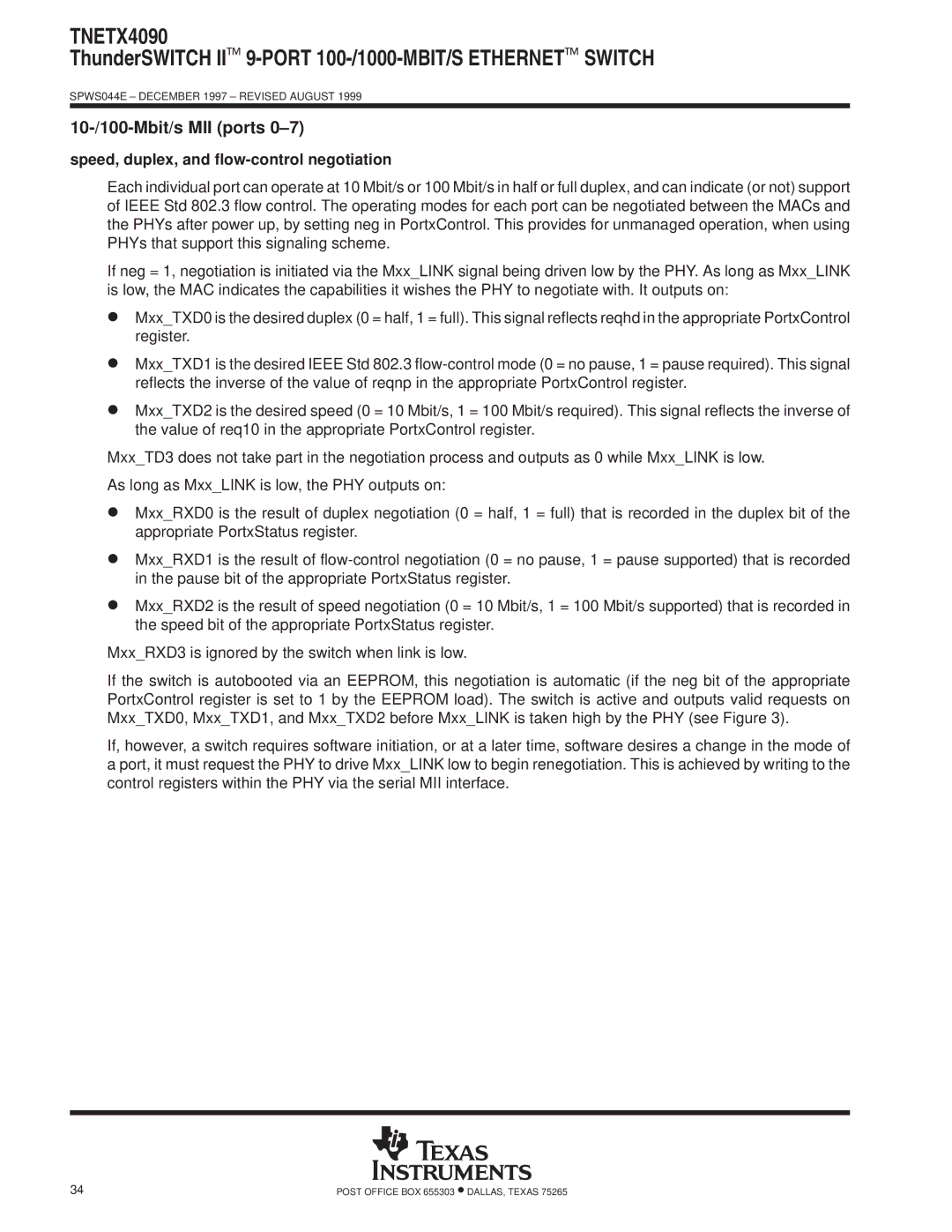
TNETX4090
ThunderSWITCH II 9-PORT 100-/1000-MBIT/S ETHERNET SWITCH
SPWS044E ± DECEMBER 1997 ± REVISED AUGUST 1999
10-/100-Mbit/s MII (ports 0±7)
speed, duplex, and flow-control negotiation
Each individual port can operate at 10 Mbit/s or 100 Mbit/s in half or full duplex, and can indicate (or not) support of IEEE Std 802.3 flow control. The operating modes for each port can be negotiated between the MACs and the PHYs after power up, by setting neg in PortxControl. This provides for unmanaged operation, when using PHYs that support this signaling scheme.
If neg = 1, negotiation is initiated via the Mxx_LINK signal being driven low by the PHY. As long as Mxx_LINK is low, the MAC indicates the capabilities it wishes the PHY to negotiate with. It outputs on:
DMxx_TXD0 is the desired duplex (0 = half, 1 = full). This signal reflects reqhd in the appropriate PortxControl register.
DMxx_TXD1 is the desired IEEE Std 802.3
DMxx_TXD2 is the desired speed (0 = 10 Mbit/s, 1 = 100 Mbit/s required). This signal reflects the inverse of the value of req10 in the appropriate PortxControl register.
Mxx_TD3 does not take part in the negotiation process and outputs as 0 while Mxx_LINK is low.
As long as Mxx_LINK is low, the PHY outputs on:
DMxx_RXD0 is the result of duplex negotiation (0 = half, 1 = full) that is recorded in the duplex bit of the appropriate PortxStatus register.
DMxx_RXD1 is the result of
DMxx_RXD2 is the result of speed negotiation (0 = 10 Mbit/s, 1 = 100 Mbit/s supported) that is recorded in the speed bit of the appropriate PortxStatus register.
Mxx_RXD3 is ignored by the switch when link is low.
If the switch is autobooted via an EEPROM, this negotiation is automatic (if the neg bit of the appropriate PortxControl register is set to 1 by the EEPROM load). The switch is active and outputs valid requests on Mxx_TXD0, Mxx_TXD1, and Mxx_TXD2 before Mxx_LINK is taken high by the PHY (see Figure 3).
If, however, a switch requires software initiation, or at a later time, software desires a change in the mode of a port, it must request the PHY to drive Mxx_LINK low to begin renegotiation. This is achieved by writing to the control registers within the PHY via the serial MII interface.
34 | POST OFFICE BOX 655303 •DALLAS, TEXAS 75265 |
